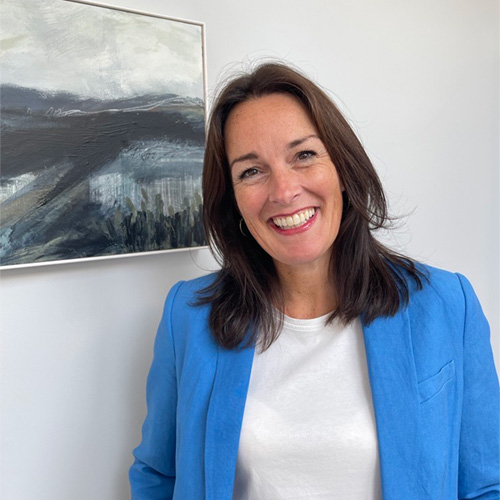
What would you describe as your most memorable achievement in the data centre industry?
I’ve spent most of my career focusing on what’s inside the data centre, rather than on the data centre itself. That began with moving companies off mainframes and into UNIX; then the next trend was virtualisation and saving space and power in data centres as a result. Then it was all about moving out of company-owned data centres and into the cloud, and now of course we see people reversing out of the cloud and looking for hybrid solutions as they see cloud costs growing and they want the data and processing power closer to the user at the Edge.
What I love about the tech sector is the pace of change and what I have realised is I am at my happiest when helping customers unlock the potential of new technology, whether that is supporting NHS in its transition to digital or more recently the new opportunities I am uncovering with 5G and Edge to support regional regeneration.
What first made you think of a career in technology/data centres?
I fell into the tech space by accident as I had planned to work in media and did my degree in communication. I was taking a gap year to travel and found a summer job nannying for a local family. It turned out that one of the parents was starting his own IT business as an IBM reseller, just as IBM ventured into the channel. He offered me a job so my life pivoted, my travel plans shortened and I began a career in tech. There were only two of us working together; I learned so much during those 10 years, it truly provided the foundation for my future and I basically never looked back.
What style of management philosophy do you employ with your current position?
I’m not sure it’s a philosophy but trust and empowerment are so important to me. I think that an open, trusting relationship is what I need from my management for me to be effective, so I try to flow that through to my team. That’s been even more important since the pandemic with people working remotely and without the same structures and support systems around them.
I like to build teams of people with complementary skills, so diversity is important to achieve that. But the one thing I do look for in people, regardless of their role, is a desire to keep learning and growing. Tech moves so fast that if you don’t have that in-built, curious nature, then you’ll just be left behind.
What do you think is the current hot talking point within the data centre space?
Beyond hybrid computing and Edge, I think the data centre market is grappling with the wider issue of sustainability at the moment. Reducing your environmental impact is a subject every customer wants to talk about, they are looking for their data centre partner to address environmental and sustainability issues, with the data and metrics to monitor energy use and carbon footprint. They are looking to partner with companies that can support their sustainability goals. As a business, Pulsant is constantly looking at how we make our infrastructure more sustainable for our end customers and delivering transparency on our actions and metrics as we progress.
How do you deal with stress and unwind outside the office?
I think that when your working week is packed with meetings and travel, then what you crave is freedom. So, when I’m feeling stressed, you’ll most likely find me walking the dog at the beach, listening to Desert Island Disks and spending time with my family.
What do you currently identify as the major areas of investment in your industry?
There’s huge investment and focus going into national fibre networks, but the progress of 5G is slow and slightly chicken and egg. The combined power of 5G and Edge has the potential to allow significant innovation in businesses and government bodies across the UK, and this will need investment and cross-sector collaboration to achieve it. Progress is slow and businesses are looking at it, but they’re not developing the applications because they’re not seeing investment in the infrastructure.
We are establishing partnerships with connectivity providers from 5G through to satellite provision to set up the necessary network infrastructure for Edge to prosper. Some of that investment is ahead of the curve as market demand is not necessarily there yet, but as data volumes continue to rise, the market for Edge will heat up and is set to reach US$274 billion by 2025.
What are the region-specific challenges you encounter in your role?
I’m passionate about regional business models and building that Edge opportunity across the UK. That’s why I love working in the Edge space as it is regional by nature and creates tangible benefits to local businesses. Each region is unique, so you have to put effort into working in the community, talking to local businesses and chambers, engaging with the new innovation hubs to really understand what’s holding them back, and conversely, where the opportunities for growth are. The biggest challenge we see across all the regions, at the moment, is business confidence as a result of inflationary pressures. This is creating caution when it comes to investment and growth is stagnant as a result.



